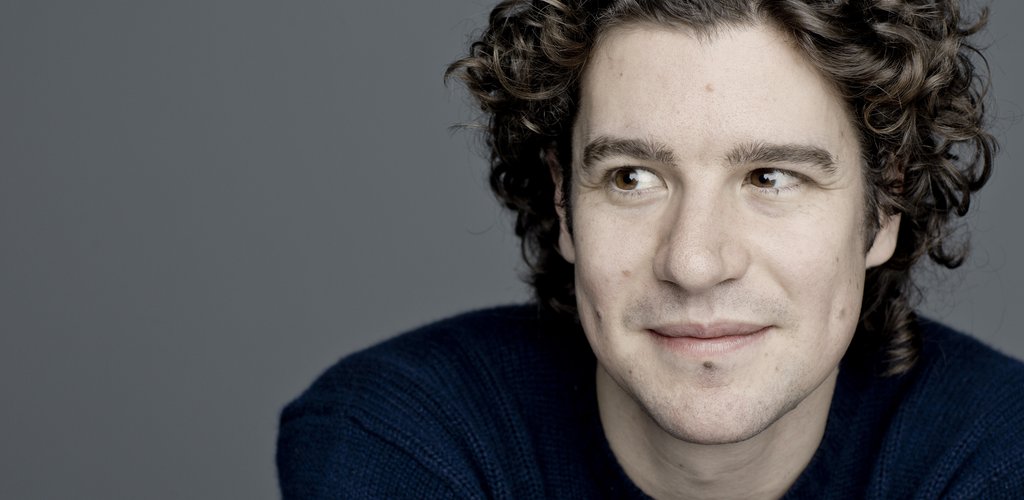The young English conductor Robin Ticciati (born 1983) returned to take Iván Fischer’s place as he led the music director’s orchestra through a coherent and logically cohesive programme. London-born Ticciati, whose Italian heritage comes from his paternal grandfather, has been the music director of the Glyndebourne Festival Opera since the summer of 2014. He started this concert off with the prelude to Wagner’s Lohengrin (romanticism, 1848); continued with Richard Strauss’ late masterpiece, the Horn Concerto No. 2 in E flat major (post-romanticism, 1943) with Radovan Vlatković playing the solo; and concluded after the interval with Anton Bruckner’s rarely heard Sixth Symphony (late romanticism 1881). I felt it perfectly apt that different periods of the romantic style were given equal footing throughout the sensitively articulated programme of German-speaking composers, two from Germany (Wagner and Strauss) and one from Austria (Bruckner). We embarked upon a journey to an area of music history that is uniform in the broad sense, but shows clear divisions both in terms of chronology and cultural tradition.
So far I’ve only seen Ticciati conduct the Budapest Festival Orchestra on one occasion, in November 2014 when he delivered a French programme (Fauré, Berlioz, Ravel, Debussy). I’m happy to quote what I wrote about him then, as it still holds true and is a train of thought which is easy to pick up:
“Robin Ticciati is still very young, and conductors mature slowly, but it can already be said that he communicates elegantly with the orchestra (the BFO performed admirably throughout their time under his baton), he chooses his tempos well, is confident in his phrasing and highly tone-conscious in his conducting. In the Fauré suite he mixed together a palette of pastel colours and made good use of the covert pianos, while Ravel’s waltzes had a sufficiently bitter (and at times flamboyant) quality to them. He erected magnificent arches in Debussy’s triptych, working up the layers of bass with his baton until the repressed energy of the sound erupted, with bursts of intensity in the outer movements and with suitable playfulness in the middle one. He is a cultured and well-prepared conductor – I look forward to seeing him again and observing his talent as it blooms.”
And on the topic of blossoming, it seems to be in full swing; this time I felt Ticciati to be a markedly suggestive, communicative musician who has a deep understanding of the works and is able to convey their content admirably. I remain impressed by the conductor’s professionalism, which entails both a confident beating technique and a pleasant distancing from superfluous banalities. His prelude to Lohengrin was markedly noble and elevated, clearly of a ethereal, transcendental nature. Meanwhile, he shone a golden light on the rich variety of characters which appear in the nostalgia for by-gone days that Strauss showed in his late music.
Bruckner deserves a longer mention as the performance of his Sixth Symphony was a remarkable pinnacle that stands out above all the concert’s achievements. Ticciati inspired the BFO, who are renowned for their excellent music-making and motivation, to perform exceptionally, with a perfect understanding and feeling for the most essential components of Bruckner’s music: the suggestive qualities carried in the hypnotic repetitions and the forms they create, the function of the ecstatic sound, the role of archaisms (such as the characteristic ‘figured bass-like’ passages, accompanied by a stealthy double-bass pizzicato), the architecture of progressive development and the pathos of the flowing string melodies in the slow movement. It was a passionate, powerful and inspired performance, one capable of showcasing the values of a rarely performed work and arguing its case.
Radovan Vlatković (1962) remains one of the best horn players in the world. Did anyone really doubt this? The Strauss concerto (which as we all know was composed by the son of Bavaria’s best horn player, and even though the composer was old at the time it’s hard not to suspect that it was written in memory of the father’s distinguished art) offers an artist of his calibre an outstanding opportunity to reveal everything in his toolbox: beautiful tone, shaded dynamics, lightness, elegance, sensitivity to characters, a unique mixture of nobility and charming clumsiness. Vlatković possesses all of these characteristics, and to top it all he is a wise and modest musician with an attractive personality. These qualities manifest themselves not only in his pleasantly natural communication with the players and the audience, but also in his music-making. The encore – as a friendly gesture to the audience and the hosts – was a short horn quartet in the Hungarian style by Mátyás Seiber, performed by Vlatković and three outstanding horn players from the BFO.

